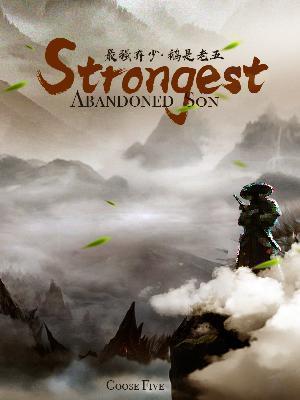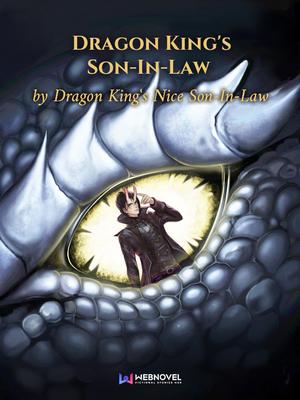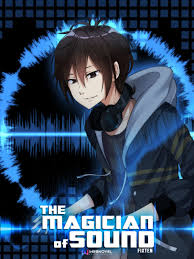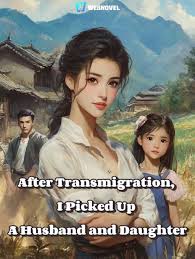The Story in 3 Sentences
A man abandoned by his wife awakens the legacy of an Immortal Emperor and steps out of obscurity into a world of hidden power and elite urban conflict.
His journey quickly evolves from personal revenge to commanding respect across martial, medical, and business circles, all while gathering a harem of powerful and devoted women.
As ancient sects, rival cultivators, and global forces converge, he must rise beyond human limits to protect those he loves and reshape the hidden order of the modern world.
Why It Stands Out
1. From Trash to Throne in a Single Breath
Supreme Hidden Dragon in the City weaponizes the classic urban cultivator trope with ruthless efficiency—its protagonist doesn’t just gain power; he weaponizes humiliation into a catalyst for total societal inversion. Where others dawdle in slow-burn awakenings, this novel thrusts Chen Fan into immediate dominance, flipping betrayal into a launchpad for godlike influence without losing the gritty texture of street-level stakes.
2. Harem as Power Network, Not Just Romance
Unlike many harem-driven urban fantasies that treat female leads as decorative trophies, this story weaves its women into a strategic web of alliances—doctors, heiresses, martial geniuses—all contributing to Chen Fan’s ascent. Their loyalty isn’t just emotional; it’s tactical, economic, and spiritual, turning the harem into a multidimensional power structure that feels both indulgent and narratively functional.
3. Cultivation Meets Concrete Jungle
The novel doesn’t just transplant xianxia mechanics into a city—it fuses them. Healing isn’t just qi manipulation; it’s performed in private hospital suites. Battles aren’t in mountain ranges but in penthouse boardrooms and underground fight clubs. This seamless integration of immortal arts into modern infrastructure gives the story a uniquely grounded yet fantastical rhythm that distinguishes it from generic “hidden master” tales.
Characters That Leave a Mark
There’s Qin Lan – the ex-wife whose betrayal ignites the entire saga, her arrogance and swift downfall serving as the first domino in Chen Fan’s transformation from scorned husband to untouchable sovereign.
You’ll meet Sun Jiancheng, who fancies himself a medical prodigy and elite suitor but crumbles the moment Chen Fan reveals his true power; his jealousy and insecurity make him a perfect foil to the protagonist’s calm, overwhelming authority.
And Su Qingyan? They’re the one who stands beside Chen Fan not out of desperation but discernment—elegant, perceptive, and unshaken by chaos, she becomes both confidante and cornerstone in his emerging empire of influence.
The Flaws Fans Debate
The pacing leans heavily on repetitive power displays, with new rivals introduced only to be effortlessly crushed within a chapter or two, reducing tension over time.
Female characters, while integral, often conform to idealized archetypes—devoted doctor, icy heiress, loyal bodyguard—without deep individual arcs outside their relationship to the protagonist.
The harem structure, though narratively functional, occasionally veers into wish-fulfillment excess, prioritizing fantasy over emotional realism or meaningful interpersonal conflict.
Must-Experience Arcs
Ch. 1–25: The Betrayal Ignition – After his wife Qin Lan abandons him for Sun Jiancheng, Chen Fan awakens the Immortal Emperor’s inheritance and retaliates not with violence, but with public humiliation and surgical precision, establishing his presence in the city’s elite circles.
Ch. 200–250: The White-Haired Elder Confrontation – As Chen Fan’s reputation spreads, ancient cultivators emerge to test him; a clash with a Late Foundation Establishment elder forces him to reveal higher-tier techniques, signaling his transition from urban legend to national-level threat.
Ch. 450–497: The Ye Family Infiltration – In the final stretch, Chen Fan infiltrates the secretive Ye Family, a hidden dynasty with ties to the Immortal Emperor’s past, culminating in a metaphysical battle that redefines the boundary between mortal and immortal in the modern age.
Killer Quotes
“My strength isn’t for show—it’s for those who have none.”
“To be hidden is not to be weak. It is to choose when the world sees your fangs.”
“The heavens may decree fate, but I rewrite it with every breath.”
Cultural Impact
Readers on Webnovel and fan forums often refer to Chen Fan as the “Urban North Mystic,” a nod to similar protagonists like Chen Beixuan from Rebirth of the Urban Immortal Cultivator, blending reverence with meme-worthy hyperbole.
The phrase “My wife betrayed me…” has become a viral shorthand in xianxia comment sections, used humorously to signal the start of any underdog-to-overlord story.
Despite modest official ratings (2.7/5 on Webnovel), the novel maintains a cult following in English-speaking urban cultivation communities, with fan translations and chapter discussions persisting across Reddit and Discord long after its completion.
Final Verdict
Start Here If You Want:
A lightning-paced urban power fantasy where every slight is repaid tenfold and every woman sees the truth before the world does.
Instant gratification wrapped in immortal robes—no grinding, just ascending.
A world where cultivation isn’t hidden in mountains but thrives in luxury cars, private hospitals, and corporate takeovers.
Study If You Love:
The evolution of the “hidden dragon” archetype in post-2020 webnovels and how it reflects contemporary anxieties about social invisibility and sudden validation.
Narrative economy in harem construction—how loyalty is earned not through romance alone but through demonstrated capability and protection.
The fusion of traditional Chinese cosmology with neoliberal urban landscapes, creating a unique subgenre of “corporate xianxia.”
Avoid If You Prefer:
Slow-burn character development or morally ambiguous protagonists—Chen Fan is righteous, decisive, and rarely introspective.
Stories where power comes with significant cost or trauma; here, strength is clean, absolute, and socially rewarded.
Female characters with independent storylines that challenge or exist outside the protagonist’s orbit—this is a solo ascent with companions, not an ensemble drama.





